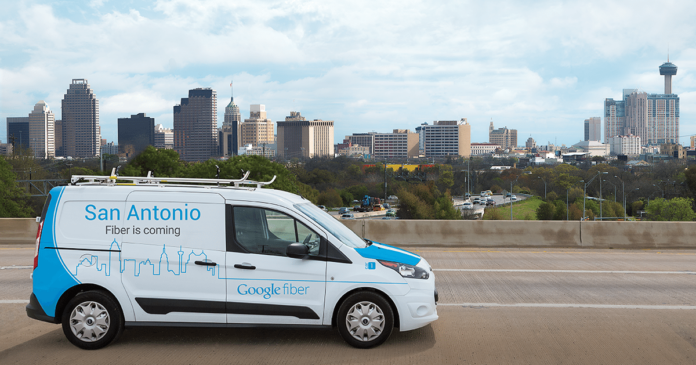1 Gbps fiber-to-the-home service expanding in cities with ‘entrepreneurial spirit’
Google Fiber, a subsidiary of Alphabet (remember that whole thing?) is now working with municipal leaders in Tampa and Jacksonville, Fla., as well as Oklahoma City as potential beneficiaries of the tech giant’s 1 gigabit-per-second fiber-to-the-home Internet service.
Google Fiber is currently available in Austin, Texas; Provo, Utah; and Kansas City, Mo. The company has labelled Salt Lake City; San Antonio; Nashville, Tenn.; Atlanta; and Charlotte and Raleigh-Durham, N.C.
Aside from the potential Google Fiber cities announced this week, Irvine, San Jose and San Diego, Calif.; Portland; and Phoenix have also been named as potential markets. Although tagged as the primary metro, the deployments also include surrounding areas in many cases. For example, the Atlanta rollout also covers Avondale Estates, Brookhaven, College Park, Decatur, East Point, Hapeville, Sandy Springs and Smyrna. Here’s a complete list.
Google Fiber Expansion Director Jill Szuchmacher covered next steps in an Oct. 28 post to the Google Fiber blog.
“Now we start our joint planning process, when we work side-by-side with local leaders to create detailed studies of each metro area,” Szuchmacher wrote. “Constructing a brand-new fiber network is a big job—the more we learn about a city, the smoother our construction efforts will be. We’ll study factors that may impact construction, like local infrastructure and housing density. City leaders will use our checklist to share key information such as maps of water and electricity lines. Early preparations not only help with our decision-making process—they help cities lay the groundwork for any service provider to enter the market.”
Szuchmacher also addressed what went into the identifying the three new potential cities.
“From startup villages to hackathons, communities are coming together to accomplish great things with gigabit speeds,” Szuchmacher explained. “Still, less than 10% of homes in the U.S. are connected to Internet served over fiber-optic networks. As more cities have access to superfast fiber networks, entrepreneurs will be better equipped to drive the next wave of innovation. That’s why today, we’re inviting [the three new cities] to explore bringing Google Fiber to their communities, as we did last month with three other cities. These growing tech-hubs have a strong entrepreneurial spirit and commitment to small business growth. One of our goals is to make sure speed isn’t an accidental ceiling for how people and businesses use the web, and these cities are the perfect places to show what’s possible with gigabit Internet.”
The notion of innovation and high-quality Internet going hand-in-hand is something that numerous technology, telecom and leaders from other industries have articulated. Bob Metcalfe, inventor of the Ethernet and currently professor of innovation at the University of Texas-Austin and visiting professor innovation at MIT, discussed this with RCR Wireless News in a recent interview.
https://www.youtube.com/watch?v=yvb82SMxMrk
In Austin, Google Fiber can be purchased as a standalone or bundled with a television package. Gigabit Internet only is $70 per month and Gigabit and television service is $130 per month; the company waives the $300 “construction fee.” The television service is not available as a standalone product.

